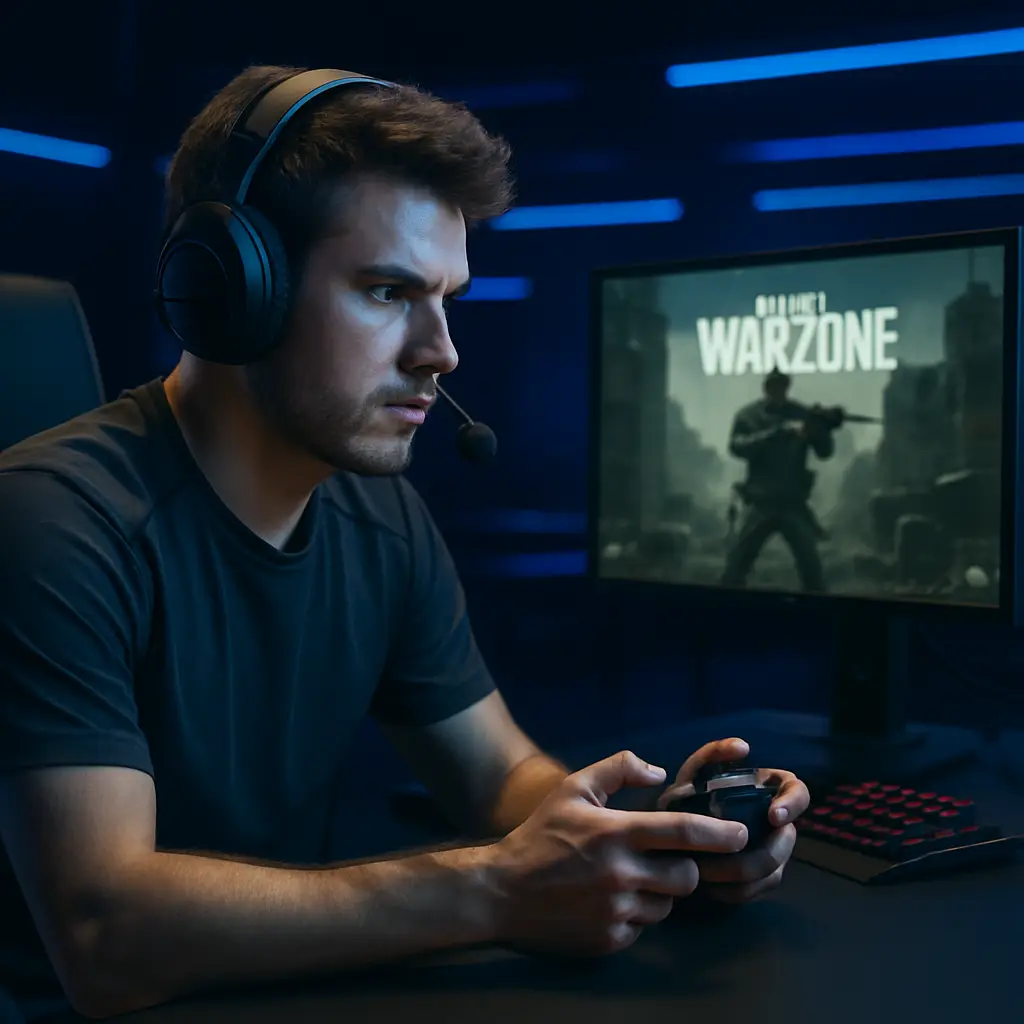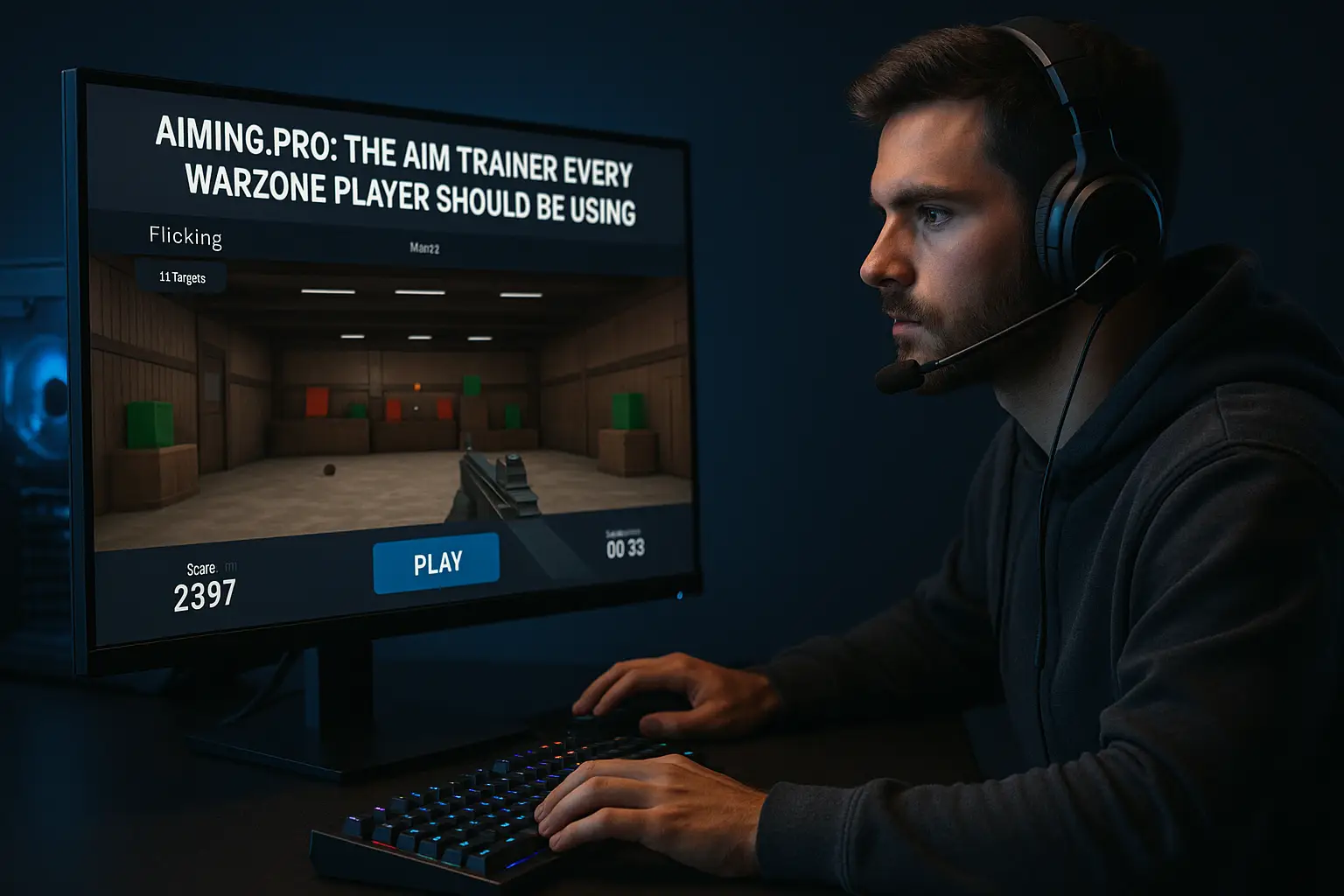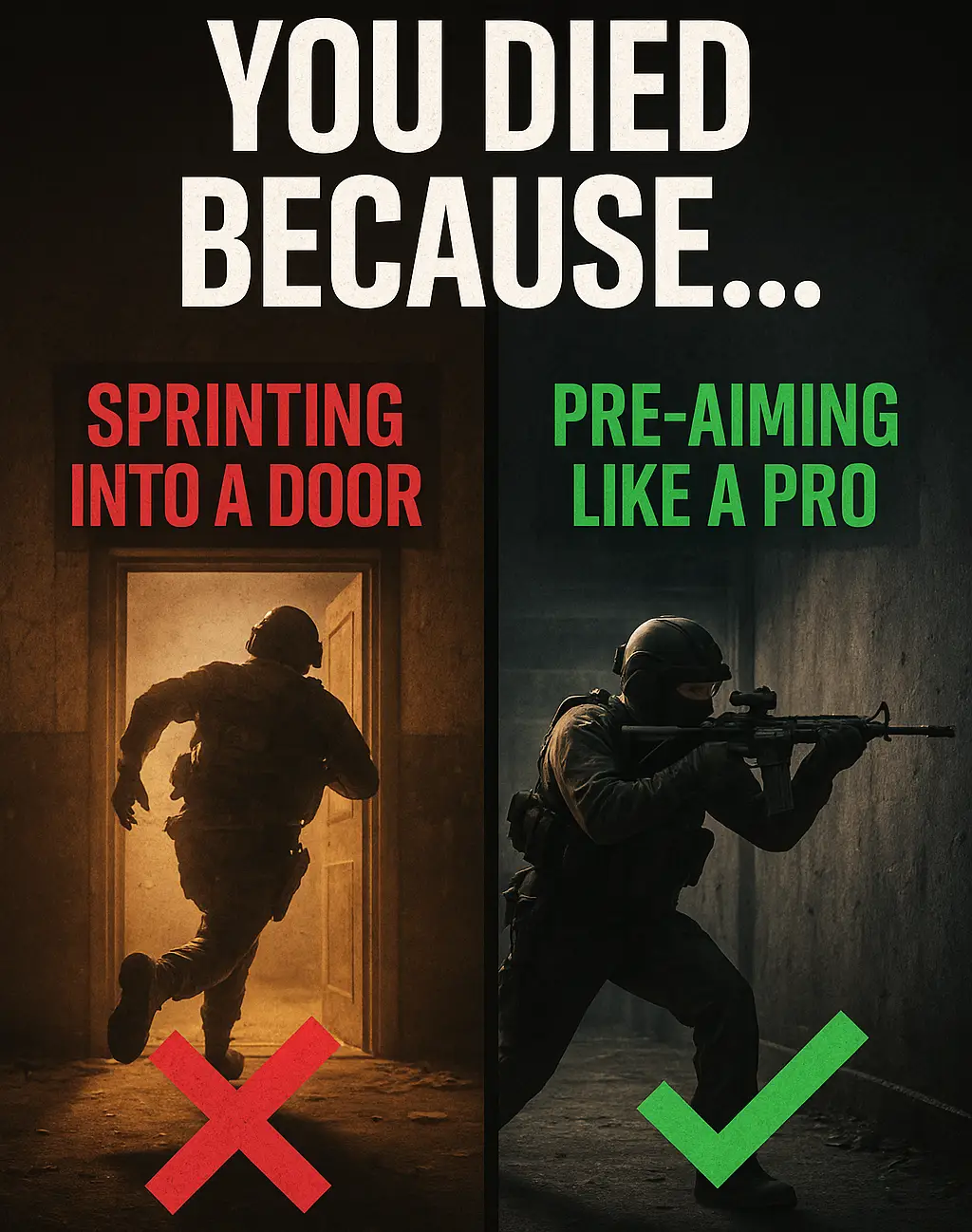
5 Tips to Master the Warzone COD Tactical Layout
Why Every Pro Player Uses the Tactical Layout in Warzone COD What Is the Tactical Layout and How Does It
Competitive gaming isn’t just about flashy killstreaks or highlight reels — it’s a mental grind that demands focus, discipline, and strategy. Inside EliteTeddy’s Mind: What Happens Beyond the Lobby explores what really happens when the controller’s down but the mindset stays sharp.
Behind every high KD ratio or tournament win is real work that most people watching never notice. Inside EliteTeddy’s Mind: What Happens Beyond the Lobby shows how focus, training, and reflection turn raw skill into consistent performance.
Stepping into a lobby isn’t about unwinding after school or work — it’s about sharpening skills, testing limits, and proving progress every session. In games where the top 1% operate on another level, showing up with purpose is the only way to rise.
People assume that being good at games like Call of Duty, Fortnite and Apex Legends is all about great reflexes or inhuman reaction times. While a fast hand can be helpful, what keeps me on top is sticking to a routine, reflecting after every loss, and putting focused time into improving one flaw at a time. Treating every match like an opportunity for deliberate practice moves me forward, such as reviewing replays instead of jumping into the next lobby out of habit.
Every ranked grind I’ve been through showed me that consistent growth has much to do with discipline. This means:
Consistency distinguishes those who hope for wins from those who build winning habits. I ensure I’m always moving forward by making every practice session purposeful and focusing on correcting specific problems instead of just playing without a plan.
When a match gets close, and the pressure’s up, self-control makes all the difference. I have lost matches where I let frustration take over, causing rushed plays, missed shots, or tilting my whole team. When I stick to my focus rituals, like a few slow breaths before the game or reviewing tactical notes during loading screens, I play way better and keep my decision-making sharp even when the stakes are high.
Having a routine before gaming, such as reviewing pro game footage or practicing a specific map, gets me into the right headspace. This doesn’t sound glamorous, but just like any sport, having a good warm-up and a way to reset between matches mentally makes a real difference. An example of this is starting each session by running aim training drills for fifteen minutes, which helps my mind and body sync up before I get into ranked play. Even quick meditation or visualization for a few moments has helped me bounce back from rough games.
Nobody climbs ladders or competes in top tournaments by relying on luck. Most elite players I’ve watched or talked to follow clear preparation strategies, and I try to do the same:
Preparation ensures I know how to tap into when things get unpredictable. It’s not just what you know about the game but also what you understand about your opponents and their tendencies. This lets me avoid tunnel vision and quickly switch roles or tactics.
There’s a difference between just reacting and playing with strong game sense. One thing I work on is reading the flow of a match. It is essential to determine what the other team will do next, predict their rotations based on past patterns, or anticipate where the next fight will break out. Building this “game IQ” comes from reviewing pro player replays, discussing strategies with trusted teammates, and honestly, from making many mistakes and learning each time.
Changing plans quickly when things go wrong or knowing when to slow the tempo and play for the win instead of personal stats helps me make better choices in crunch moments. I’ve learned that overconfidence or stubbornly sticking to a plan isn’t as effective as being able to reevaluate fast and adapt on the fly. When the other team throws a curveball, I can rely on pattern recognition, past experiences, and my ability to spot shifting strategies. This mental flexibility is what keeps me competing at a high level again and again.

Pushing for elite performance in gaming brings its own set of challenges. Here’s how I’ve worked through a few of the most common:
Feeling like every match is the same grind used to make me consider dropping ranked play altogether. Sticking to a mix of competitive and casual sessions and ensuring I take a break after a string of losses rather than just playing one more match helps me return with more energy and new ideas. Using playlists with energizing music or watching a fun streamer during downtime also upsets my energy when things get dull.
I lost focus quickly when teammates acted out, or matches started falling apart. Now, I stay grounded by using short breathing exercises, muting toxic players, and sometimes queuing with one or two trusted friends. Keeping a stress ball at my desk and jotting down a key takeaway from each loss also gives me a constructive way to process those frustrating moments.
Getting stuck at the same rank and feeling like you’re not improving can be frustrating. Reviewing replays, focusing on a single skill, or asking higher-ranked players for honest feedback can make a big difference—there’s a reason even pro gamers have coaches. When I feel stuck, I sometimes log into Call of Duty 3 on a lower-ranked account and play a few matches. It lets me experiment without pressure and helps me spot gaps in my fundamentals. That mental reset often pays off when I return to my game.
Some days, the ranked grind feels heavy. So, I remind myself to appreciate small events, such as making a clever play or surviving a tough round. These moments matter as much to improvement as big wins. Joining Discord groups for motivational tips or sharing cool highlights with friends makes the ride less lonely and helps when I’m low on energy.
If you already feel solid about your gameplay, here are some habits I’ve picked up that make a real difference at higher levels:
The best players I’ve watched never stop experimenting. Keeping your approach fresh and flexible is key, whether swapping sensitivities, mapping new key binds for utility, or trying strange off-meta characters to find an edge. Sometimes, watching a tutorial of pros gives you a trick that throws off your opponents and becomes part of your playbook.
Quality gear makes practice smoother, but the discipline to maintain your gear and settings leads to consistency:
While it might not seem like a big deal, a tidy desk, a good chair, and reliable internet make a huge difference. They allow me to concentrate fully and make steady progress every day.
Here are a few questions I get asked often about discipline and performance in elite gaming:
Question: How can I stay focused in long gaming sessions?
Answer: Take short breaks every hour to reset your eyes and mind. Use these moments to stretch or step outside and return for the next match with renewed energy. Sometimes, I use a timer to remind me to get up, walk around, or drink water—these mini-breaks keep my reactions and focus sharp through extended decision plays.
Question: What’s the best way to improve my game sense?
Answer: Watch professional matches or high-level streamers and consider their decision setups during key moments. Practice predicting what will happen next in spectator mode to build up your sense of timing and positioning. Over time, you’ll spot familiar setups and react faster in your games.
Question: Is hardware as crucial as a skill?
Answer: Great gear helps, but the discipline to stick with the same settings and pay attention to small details will always offer more consistency over time than just upgrading to the latest equipment. Focus on practicing with the hardware you have while keeping everything in good shape. The proper fundamentals matter even if you don’t have the most expensive gear.
The absolute joy of elite play comes from noticing steady growth. Whether breaking into a new rank tier, coordinating a slick team play, or keeping cool during a stressful comeback, discipline always has a hand in every win. I treat every loss like a video review, every win as a checklist of what worked, and every session as a new chance to get a little stronger.
Competitive gaming rewards more than raw talent. If you put in real focus and steady practice and keep learning from your mistakes and victories, the lobby becomes more than just a place to pass the time. It becomes your training ground, offering challenges and the satisfaction of real accomplishment through commitment and growth.
Thanks for reading Inside EliteTeddy’s Mind: What Happens Beyond the Lobby. You can also read The Call Of Duty League: Competitive Gaming At Its Finest.
Ask Questions: If you have any questions, leave them in the comments below.
Happy Gaming!

Why Every Pro Player Uses the Tactical Layout in Warzone COD What Is the Tactical Layout and How Does It

Best Aim Trainer for Warzone (Aiming.pro): Why Every Player Should Be Using It If you’re looking for the Best Aim

Warzone Sprint-to-Fire Delay Explained (Top 5 Secrets to Win More Fights in 2025) Field Brief: Understanding Warzone Sprint-to-Fire Delay “The